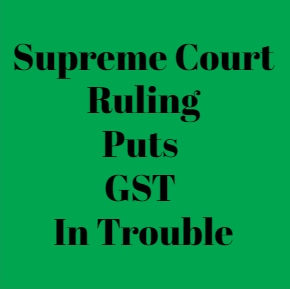

By Our Editorial Team
First publised on 2022-05-20 03:17:15
The idea of one nation, one tax as espoused by the Goods & Services Tax regime received a huge jolt on Thursday when the Supreme Court ruled that the GST Council decisions are not binding on the Centre and the states. This leaves the door open for states to think of levying their own rates on different items or even imposing additional taxes. At worst, it will have the effect of bringing down the carefully crafted consensus on the matter, which, despite occasional disputes between the Centre and the states, has stood for so many years and has served the tax regime well.
The apex court used a technical point of law to rule that "if the GST Council was intended to be a decision-making authority whose recommendations transform to legislation, such a qualification would have been included in Articles 246A or 279A" but "neither does Article 279A begin with non-obstante clause nor does Article 246A provide that the legislative power is 'subject to' Article 279A" and hence "GST Council is a recommendatory body aiding the government in enacting legislation on GST."
Although the Centre has said that the Supreme Court ruling will not impact GST regime as it does not lay down anything fundamentally different from the existing GST framework, opposition-ruled states have already started demanding changes in decision-making. The Centre will have to take steps to rectify the situation. Since the Supreme Court ruling is on a technical point of law, a review petition is unlikely to help. The Centre must amend the law and plug the legal gap to ensure that the GST is not fragmented. This must be done fast to avoid uncertainty on the issue.











